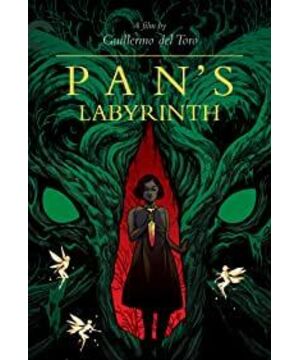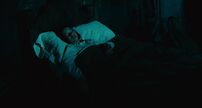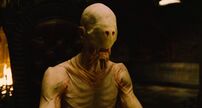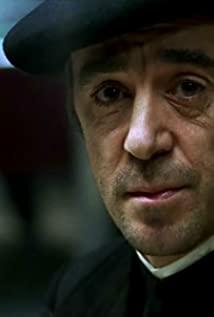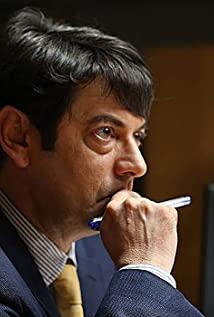At the beginning of the story, the film briefly introduced us to the Spanish political situation at the time with short subtitles. It also explained why the little girl Ophelia had a long drive with her pregnant mother to live in the barracks of her stepfather, Captain Vida. However, if the general audience is not familiar with the history of the Spanish Civil War, it is easy to overlook the political and historical echoes hidden in the film by the director.
In 1936, the Spanish leftist army won the victory and established a republican government and attacked Hitler and the Fascist Legion, but in 1939 the republican government failed and was led by General Franco of the New Fascist Legion to take power, and Spain officially entered the militaristic dictatorship. This situation continued until Franco's death in 1975, Juan. After Carlos I (also the current King of Spain) took over, he began to implement democratic reforms, and Spain officially came out of the dictatorship.
The story in the movie took place in 1944. At this time, Spain was ruled by the powerful General Franco government, and Captain Vader was also a typical "cold fascist" representative in this story. In the whole story, he can be said to be cruel and ruthless. He doesn't care much about his wife. He only cares about whether his unborn child can inherit his own will. Of course, we can also see the director's aversion to fascism and the projection of the impression-without blood or tears, even relatives can betrayed.
The most important part of this movie is the interlacing and struggling between reality and fantasy. To be honest, the little girl’s fantasy is really not beautiful. In addition to the little fairies and shepherds, there are also monsters that eat children, and the giant leprechaun who lives underground and eats poisonous insects. What's more, this fantasy finally killed himself.
She imagined that a group of little fairies came to find herself and took herself to the entrance of a mysterious underground kingdom, where she met the god of Faun (in ancient times, the god of shepherd was said to have a pair of horns, named Pan). The god said that the little girl is The lost princess of the underground kingdom, but because she has left the kingdom for too long, she must complete three arduous tasks if she wants to go home.
In order to escape from the murderous military camp, to escape from the ruthless stepfather, and to save the mother who is becoming weaker and possibly dying of childbirth, the little girl desperately decides to complete the task: under the tree cave full of mud and poisonous insects, shovel the magic stone into it. Leopard Shrimp's mouth used to take out the key he swallowed, draw a door with chalk by himself, and lead to the mysterious palace where the kid-eater monster lives, and use the key to find the sword within the time limit... .
But in the second task, the little girl caused two little fairies to be eaten by monsters because of gluttony. Even the Faun said to him, "You have no hope! It is impossible to return to the underground kingdom"; at this time, In order to improve the mother’s health, the mandala grass (soaked in milk every day and placed under the mother’s bed) obtained from the god of shepherds was also discovered by the stepfather and asked the mother to throw the mandala grass into the stove and burn it; More unfortunately, after her mother burned the mandala grass that prayed for her, she died in childbirth!
At this time, for ordinary people, no matter how much fantasy and hope, they should wake up and be broken. But the little girl still didn't give up, the sheep man came to him and asked Ophelia to steal out his younger brother who was not long before and bring him to the labyrinth. So hope is here again, and the adventure begins again!
However, during Ophelia's first two adventures, the captain's barracks were fighting guerrillas hiding in the nearby forest. The guerrilla spy was the housekeeper Messity of the captain. She copied a warehouse key to the guerrillas so that the guerrillas could attack the barracks and quickly take away the supplies in the warehouse. It was this key that revealed After filling, let the captain know that there is a spy in the house.
The same is the key. One brings hope to Ophelia, and the other brings destruction and panic between the army and the guerrillas. Ironically, neither the captain nor the mother of the "government army" can give Ophelia. The protection of Leah, for the care and protection of Ophelia, but Messiti as a spy.
"My brother is locked downstairs, how can I bring it to you?" The little girl asked the sheep man, and the sheep man said, "If you can't open the lock, and you can't find the door, then draw one yourself."
Graffiti on the wall, imagine everything about graffiti It can come true, isn't it what we all originally imagined when we were children? Ophelia just sneaked into the captain's room and stole her brother, but, as her mother said before her death: "Fantasy and fairy tales will wake up one day." She was discovered by the captain.
In the maze, the little girl was unwilling to hand over her younger brother to the sheep man, because the sheep man said that "the purest blood must be used to open the entrance to the underground kingdom." The little girl refused. Therefore, she was killed by the captain who came after her!
And the captain who regained his son really couldn't let his children inherit their own will and grow according to the original hope. Messiti came with the guerrillas, the captain is dead, the little boy will grow up with care and warmth, and at the end of the story, the director is still very warm and fulfilling one of our wishes: the little girl has returned to the underground kingdom she dreamed of , Because he is unwilling to allow any innocent sacrifice, even if the reason is complete.
The best thing about De Toro’s "The Labyrinth of the Sheep Man" is that he not only wrapped this Spanish historical story with a fantasy story, but also created a dual story of duality through exquisite arrangement and layout. This gives some judgments on this period of history.
If we only look at the result theory, we will ignore the beauty that once existed in many processes. Those insistence on ideal things, even if they end in failure, still have far-reaching significance and are only for those who know how to understand. Day Toro responded to these questions poetically through this film.
View more about Pan's Labyrinth reviews


